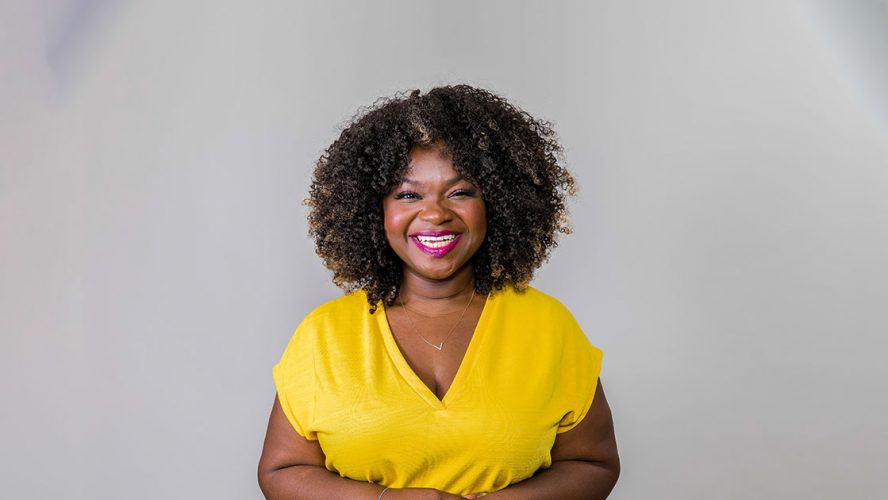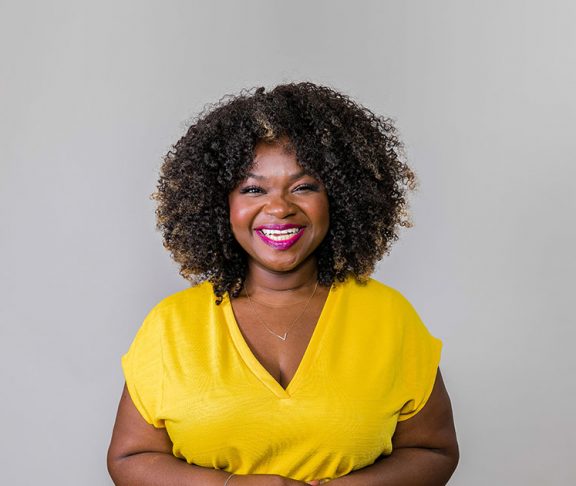If there’s one piece of advice entrepreneur and business coach Vivian Kaye wants all her fellow women entrepreneurs to take from her, it’s to have “the audacity.”
“Women, we’re socialized backwards. Women are socialized not to take risks, whereas men are. And so this past year, I’ve been really, really focused on ‘the audacity,’ and how I frame it is I tell women to do what ‘Chad’ would do,” Kaye said. She explains, “Chad is that mediocre white guy doing all the things he has no business doing. He’s that guy whose confidence overrides your expertise.”
While women often won’t go for an opportunity if they don’t feel 100 percent qualified for the job, a Chad will go for it even if he doesn’t have a single qualification — and he’ll get it. This is the attitude Kaye would like to see more of in women.
Still, she understands from first-hand experience how difficult starting a business can be for women. Women are often tasked with greater percentages of the housework and childcare than their male peers, and they have been hit particularly hard during the pandemic. According to an Oxfam International report, women globally lost $800 billion in income over the past 15 months.
“We’re seeing that there’s a lot of women who have dropped out of the workplace because childcare relies on them,” Kaye said. “Whereas entrepreneurs, we can’t drop out, we have to finish what we started. And so that means burning the candles at both ends.”
As a single mother, Kaye knows this better than most. When trying to juggle at-home learning for her son, managing her businesses, and whatever self-care she can squeeze in, Kaye said she experiences, “lots of guilt, lots of feelings of helplessness, feelings of frustration, feelings of, ‘oh my gosh, I need this to be over.’ Like, I need the ‘precedented’ times to come back.”
Prioritize success
As for so-called “work-life balance?” Kaye says to forget it. “What you quickly learn is that there’s no such thing as balance,” she said. “So if you thought that was the idea before, you’re going have to throw it out the window. So I would say you have to think more about priorities and to figure out where your priorities are.”
One way to help iron out those priorities and keep yourself on track that Kaye recommends is to automate or outsource whatever tasks you can.

“One of the tools I rely on to help me mitigate that burnout and fatigue would be things like automation, especially for small businesses. So automation would help you to streamline your business and make things more efficient, especially the day-to-day stuff,” she said. “Like, say, accounting. You hook up your QuickBooks to your bank account, and that way you can sit there and set it up to auto-reconcile.
“So things like that, even social media, where you can schedule your posts, even ads, even email, all that automation helps make everything more achievable. It makes it easier to do, and you can do it on a budget. And if there’s something you can’t automate, you can outsource it.”
Lessons learned
Digitization was taking over the small business world even before the pandemic, and Kaye says she thinks some of the trends we’ve seen pop up over the past year may be worthwhile to keep around. Giving people the choice to have a virtual meeting rather than being dragged out of the house for an in-person coffee meetup could be helpful, for example. “Doing virtual events and virtual meetings and curbside pickup and that type of thing. I think that’s been good for business,” she said.
But even as brick-and-mortar stores continue to disappear, and even as people see a greater reliance on platforms like Amazon — Kaye is adamant that you don’t need Amazon to make your company succeed.
“You don’t need Amazon. I built this business. I’ve done 6 million in sales without Amazon. What you do need is community. If there’s one thing that Amazon can’t do is be a person and build a brand,” she said. “It’s very impersonal. They’ll just store your stuff in a box, but you can have a whole unboxing experience for your customers and that’s what makes it memorable. And that’s what they’ll share on social media.”
Kaye knows that all of these hurdles — competing with Amazon, juggling childcare and burnout, becoming overwhelmed by everyday tasks — can seem insurmountable. But they’re not, she says. “You can still dream big because you have every right to do so,” Kaye said. “So whenever you’re facing a challenge or you need to step outside of your comfort zone, I always say, ‘Well, what would Chad do? And do that.’”

